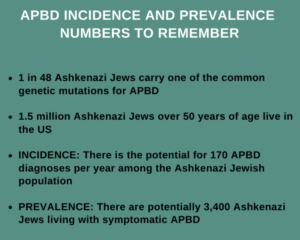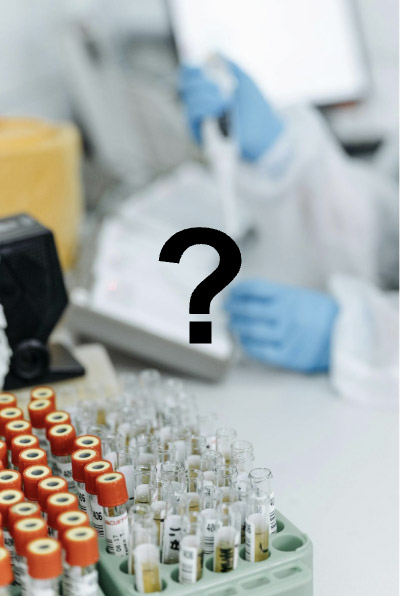 We’re excited to share research published by community member Larry Schwartz — a statistician who gives his time generously to our Foundation — and a team of researchers at five academic sites in the US and Israel.
We’re excited to share research published by community member Larry Schwartz — a statistician who gives his time generously to our Foundation — and a team of researchers at five academic sites in the US and Israel.This important prevalence study was published in the American Journal of Rare Disorders: Diagnosis and Therapy earlier this summer.
Read the study here…
What’s the number?
The team estimates the prevalence of APBD at the gene level (that is, whether the disease is diagnosed or not) at 3,400 for Ashkenazi Jews over 50 years of age in the US.
Why look at Ashkenazi Jews?
APBD is diagnosed far more often among people of Ashkenazi Jewish ancestry.
Why is this prevalence number important?
When a disorder can be shown to affect fewer than 200,000 people in the US, the US FDA applies “Orphan Drug” designation. The designation is tremendously valuable since it expedites the timeline for the FDA to complete its multi-level review of products (drugs, biologics, devices, or medical foods) used to treat rare diseases. It also creates incentives for pharmaceutical companies to develop new products for rare diseases.
Our basic science research is revealing strong contenders for an APBD treatment or cure, and this prevalence study is a part of our preparation for the clinical trials.
Clinical trial readiness — it’s all about you
Your voice matters more than you can imagine! Time and again, we have been advised of the importance of having APBD patients participate in our registry and natural history study initiatives.





